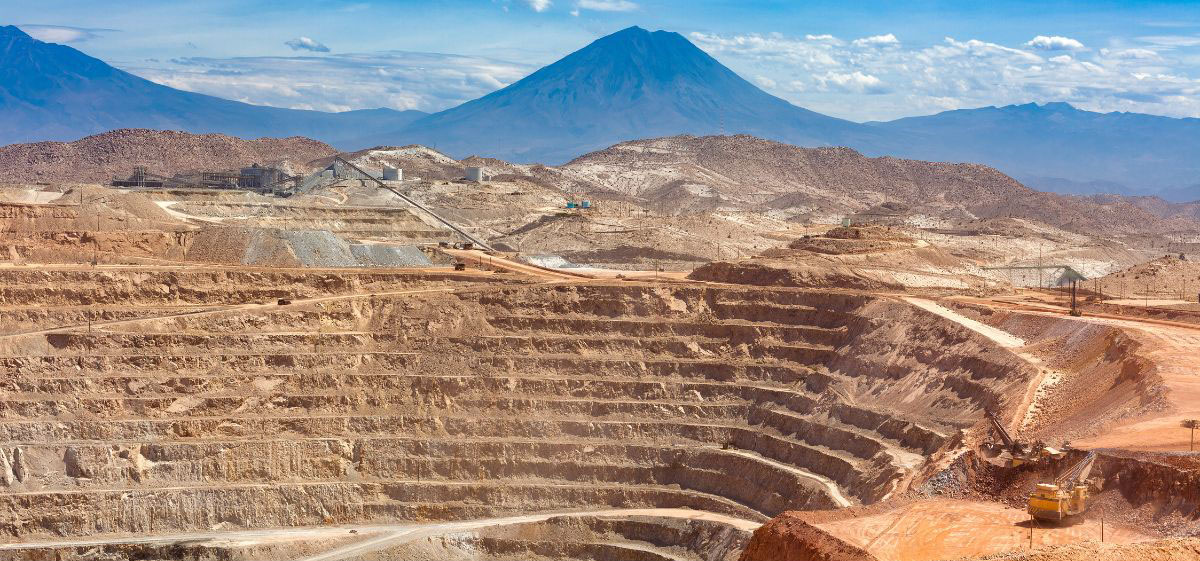The shift to electric vehicles is a tremendous win for air quality, public health, energy security, jobs, and the planet. Electrifying transportation is critical to addressing the climate crisis and cutting tailpipe emissions, both of which disproportionately harm Indigenous, Black, and other communities of color. As we transition to a clean energy economy, we must update mining laws to maximize the benefits of transportation electrification while protecting communities and the environment. The mining industry has a well-documented history of social and environmental degradation that must be addressed as we expand mineral exploration and procurement for the production of batteries needed in electric vehicles.
Plug In America believes we do not have to choose between electrifying transportation and protecting mining-affected communities and the environment.
For over 150 years, hardrock mining in the United States has been governed by the General Mining Law of 1872. This law dates back to the U.S.’s initial settlement and colonization of the West and was designed to encourage miners to establish mines by making land and mineral resource rights easy to secure. The impact of this law is evident: 40 percent of the watersheds in the western United States are contaminated by pollution from hardrock mines, over 500,000 abandoned mines are littered across the country, a majority in close proximity to Indigenous communities, posing environmental and physical safety hazards and costing taxpayers tens of billions for cleanup. Unlike every other kind of extraction in the U.S. and unlike every other country’s hardrock mining laws, mining companies in the U.S. pay no royalties for extracting resources from federal public lands. The techniques of hardrock mining have changed dramatically from the original pickaxe and shovel of the 1800s. Additionally, technology has greatly expanded the impact of mining, yet the law remains the same and fails to meet the present needs of Tribes, communities, and the environment.
Recently, two mining bills have been introduced in Congress. One, the Clean Energy Minerals Reform Act will create a framework for ethical, responsible mining to support a clean energy transition that protects mining-adjacent communities, adjoining land, and downstream water resources. The other, the Mining Regulatory Clarity Act, attempts to further weaken the already ineffective environmental and social protections of the 1872 Mining Law. On December 12, 2023, the Senate Energy and Natural Resources Subcommittee on Public Lands, Forests, and Mining heard testimony on the Mining Regulatory Clarity Act. If passed, this bill would worsen our already antiquated laws.
Currently, the Mining Law features the simple requirement that mining companies show evidence that they discovered valuable minerals on their claims before they use and occupy those public lands. The Mining Regulatory Clarity Act would remove this requirement, along with decisions by courts and by the Biden administration that prevent mining companies from dumping toxic waste and mine tailings on public lands, and allow anyone, for a nominal fee, to secure permanent rights to occupy land and construct powerlines, roads, pipelines, and massive waste dumps, even if the area contains no minerals. The Mining Law already deems mining to be the “highest and best use” of public land, above all other types of land use, including conservation, renewable energy development, natural carbon storage, recreation, grazing, and sacred/cultural sites. If enacted, the Mining Regulatory Clarity Act would make land use on “claimed” lands even more exclusive, allowing a prospector to claim land that may not even have valuable minerals and prevent that land from being used for other, more suitable purposes.
We urge the subcommittee to reject the highly problematic Mining Regulatory Clarity Act, and instead pursue reforms such as those outlined in the Clean Energy Minerals Reform Act (CEMRA), introduced by Senator Heinrich of New Mexico and Chair Grijalva of Arizona. During the same December 12 hearing, the committee heard testimony on this bill as well. If passed, CEMRA would:
- Institute a rental and royalty structure so mining companies pay like every other extractive industry for the public lands they occupy and extract from.
- Establish a leasing system that balances mining with other public land uses such as conservation, clean energy development, recreation, and cultural use through existing land-use planning processes.
- Set strong environmental and reclamation standards for mining activities to ensure that mining sites are cleaned up by the mining entities, not taxpayers.
- Grant federal land managers clear authority to protect certain areas from future mining.
- Require meaningful and timely consultation with Tribes and communities that may be impacted by mining activities.
Plug In America advocates for a circular economy where our need for newly mined minerals is decreased significantly through robust reuse and recycling policies. Simultaneously, we acknowledge that the transition to clean transportation will require some amount of mineral extraction. We have learned from the past 150 years of unrestricted and irresponsible mining practices and want to translate those learnings into necessary policy changes where extractive industries are not prioritized over communities, their resources, and the environment.
Moving away from a fossil fuel economy means moving away from a system where millions die every year due to fossil fuel combustion. It means an end to devastating oil spills, local air and water pollution like that in Cancer Alley, and the desecration of Tribal lands from fracking. But simply moving sacrifice zones from one place (communities near oil, gas, and coal extraction, and refining) to another (communities near mineral extraction and processing) is not a just transition. As we move forward with the clean energy transition, we can do better. Updating our mining laws in a way that improves protections for people and places is an essential part of ensuring a just transition to a clean energy economy.

